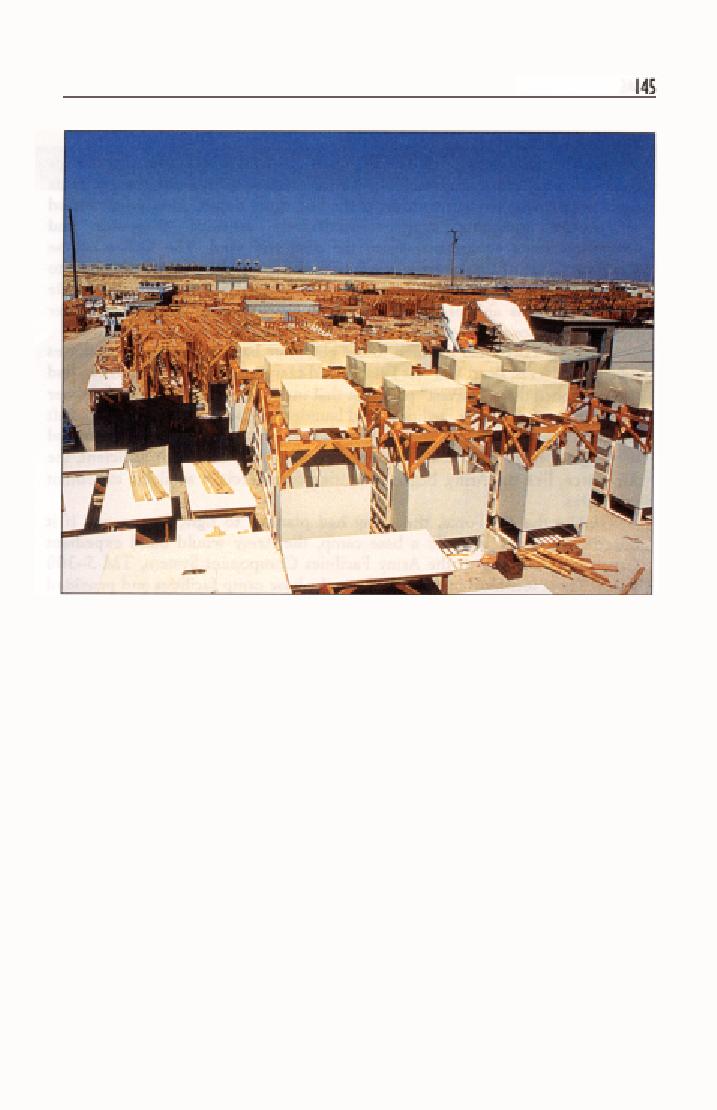
Supply Contracts
Contractors assemble latrine, shower, and washstand units for U.S. soldiers.
(U.S. Army photo by the 49th Public Affairs Detachment)
would delay delivery of the units. If the Saudis could not ensure prompt
delivery of the units through their own contracts to meet the "critical" need, he
warned, he would have to issue a contract using U.S. funds and procedures.
Meanwhile, as the United Nations' 15 January deadline approached, contract
workers began to abandon their work sites. Khudair shipped more than 2 0 0
u n i t s a day to Saudi Arabia's northern province, but as workers fled,
maintaining those rates was difficult. Determining that the Saudis could not
respond quickly enough, Corps staff awarded a U.S. contract to Khudair to
supply 3,000 latrines, 2,000 showers, and 1,000 washstands.5
By 17 January, the Dhahran Area Office had delivered 10,500 latrine,
8,016 shower, and 5,600 washstand units. The units were not perfect. Troops
o c c a s i o n a l l y complained about rusty water and problem doors, but they
appreciated having the facilities. General Pagonis observed that the latrines and
showers contributed to the low sick rate among U.S. forces.6
Santucci felt a strong sense of pride and accomplishment when, on the eve
of the ground war, at the end of a meeting on the logistics scenario for forward
deployment, he heard General Pagonis comment, "Well, that's it then. We're
going to load up our showers and go."7



 Previous Page
Previous Page
